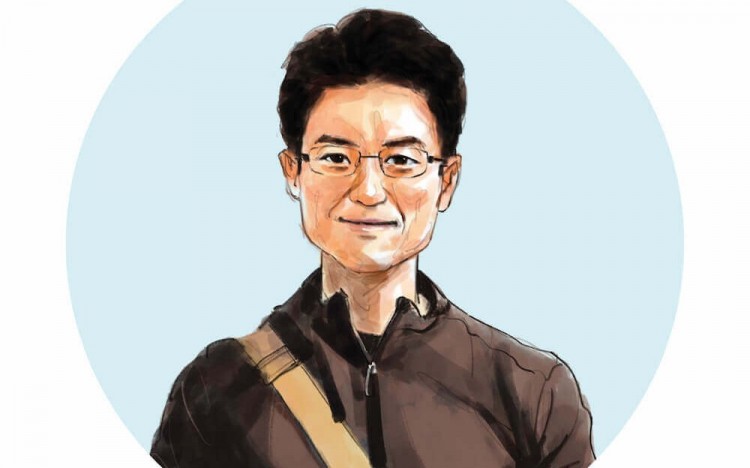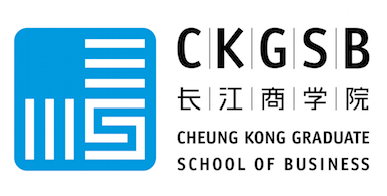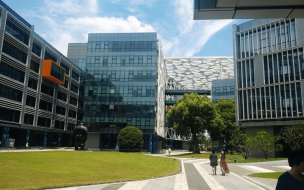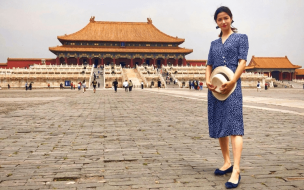It’s the early 2000s. Takashi Ishikawa and his crew are on an anti-terrorism operation with coalition forces somewhere in the Indian Ocean. They make up one of the 20-something submarines of the Japan Maritime Self-Defense Force—the Japanese Navy.
Conditions are cramped—the average submarine is little more than 10 meters wide. Crews of more than 80 are packed into tight confines—bunk bed next to bunk bed, officers next to new recruits.
Hundreds of meters underwater, crews work in isolation for months at a time. There’s radio silence—no TV or internet, no phone calls. Jobs crop up around the clock. Crew members take short naps—a few hours here, a few hours there—but never really sleep.
It’s a tough job, but Takashi made the most of it—the turbulent lifestyle, the pressure-cooker environment, and the leadership training prepared him for a career in business. Later, with an MBA on board, he completed the transition—from the military to management.
Military life
A child of Japan’s baby boomer generation, Takashi grew up in a big state-owned apartment block just outside of Tokyo. During his university years, he went to Thailand to teach Japanese to high school students in Bangkok—his first experience abroad.
“That experience inspired me and opened my mind to the world,” he says. “After university, I knew I wanted to do something connected to the world outside of Japan. My uncle was a naval officer, and I knew that if I joined the Navy, I would have the chance to travel.”
Takashi qualified as a junior grade lieutenant in the Japanese Navy—one of the strictest and most hardline organizations in the world. When Japanese Navy sailors march, they step forward with their left leg, never their right. Your posture, every detail in your behavior, has to follow some kind of rule.
After September 11th, 2001, while political chaos reigned on the surface, Takashi worked away from the spotlight—first, training with the US Navy in Hawaii, and then on an anti-terrorism submarine operation in the Indian Ocean. As a young liaison officer, he played a critical role for the Japanese as the link between two very different groups, helping his crew use and adopt new technology from the US.
“The Navy was the biggest challenge in my life—I cannot compare anything to it,” he says. “But, in the Navy, you feel like you are part of something, like part of a family—that’s something you can’t feel in the same way working in the private sector.
“Although it was a very difficult decision to leave the Navy, I never thought it was a job for life,” he continues. “After maybe 20 years in the Navy, you can become a decision-maker. However, in the first 10 or 20 years, it’s the same routine—constant training, no privacy, no space to create something new.
“The more time I spent in the Navy, the more I thought about building a career in the business world.”
Transition
After leaving the Navy, Takashi spent seven years in IT—he’d seen the value of new technology from the US—advising consulting clients and developing solutions for banks.
But he was always one part of a bigger project—the decision-making was being done by someone else—and Takashi wanted to be the decision-maker. To take the next step in his career, he decided to do an MBA.
“At the time, China had been changing a lot,” he says. “The economy was booming and there was a lot of tech innovation coming from the Chinese market, with companies like Alibaba, Tencent, and Baidu. As an IT guy, I was very interested in China,” he continues.
“Plus, lots of Japanese graduate from famous MBA programs in US and Europe. I chose CKGSB to differentiate myself.”
Japan and China share a complicated past. Growing up, Takashi would sometimes watch a TV series where Japanese children left in China after World War Two were reunited with their families. “My memory of China is always connected somehow to World War Two,” he says.
Takashi joined CKGSB in September 2012, just as Sino-Japanese tensions flared over disputed islands in the East China Sea. Takashi was the only Japanese student in the MBA class. On his first week, there were public demonstrations in front of the Japanese embassy in Beijing.
But he was soon reassured by the support of his Chinese classmates at CKGSB—he traveled with them to visit the ancient Chinese capital, Xi’an. Through a CKGSB Executive MBA alum, he landed a summer internship, planning a digital market entry strategy at EY.
“The CKGSB MBA is not just about listening to lectures in a classroom,” he says. “It’s a real business experience.
“From my classmates and experiences in Beijing, I learned a lot, not only about IT, but about accounting, finance, investment strategy and supply chain,” he continues. “What I learned from CKGSB helps me in business today.”
Management
After graduation, Takashi got his dream management job—project manager in the global IT department at Fast Retailing Co., Uniqlo’s holding company.
Now, he’s leading a global IT project on Radio Frequency Identification (RFID)—a new trend in fashion tech—making sure every item of Uniqlo clothing is microchipped, and giving the retailer better control over its supply chain and stock. Most of the factories he’s working with are in China—Takashi travels from Tokyo to Shanghai twice a month.
His next step is to develop a career based on his experience to date—to become a consultant and leading expert in the RFID technology space. It’s an ambitious plan but Takashi is well-prepared: “Even a very stressful time in business is nothing compared to the stress I had in the Navy,” he smiles.
With his naval background, plus the experience he gained from his MBA at CKGSB, he’s more than up for the challenge.








